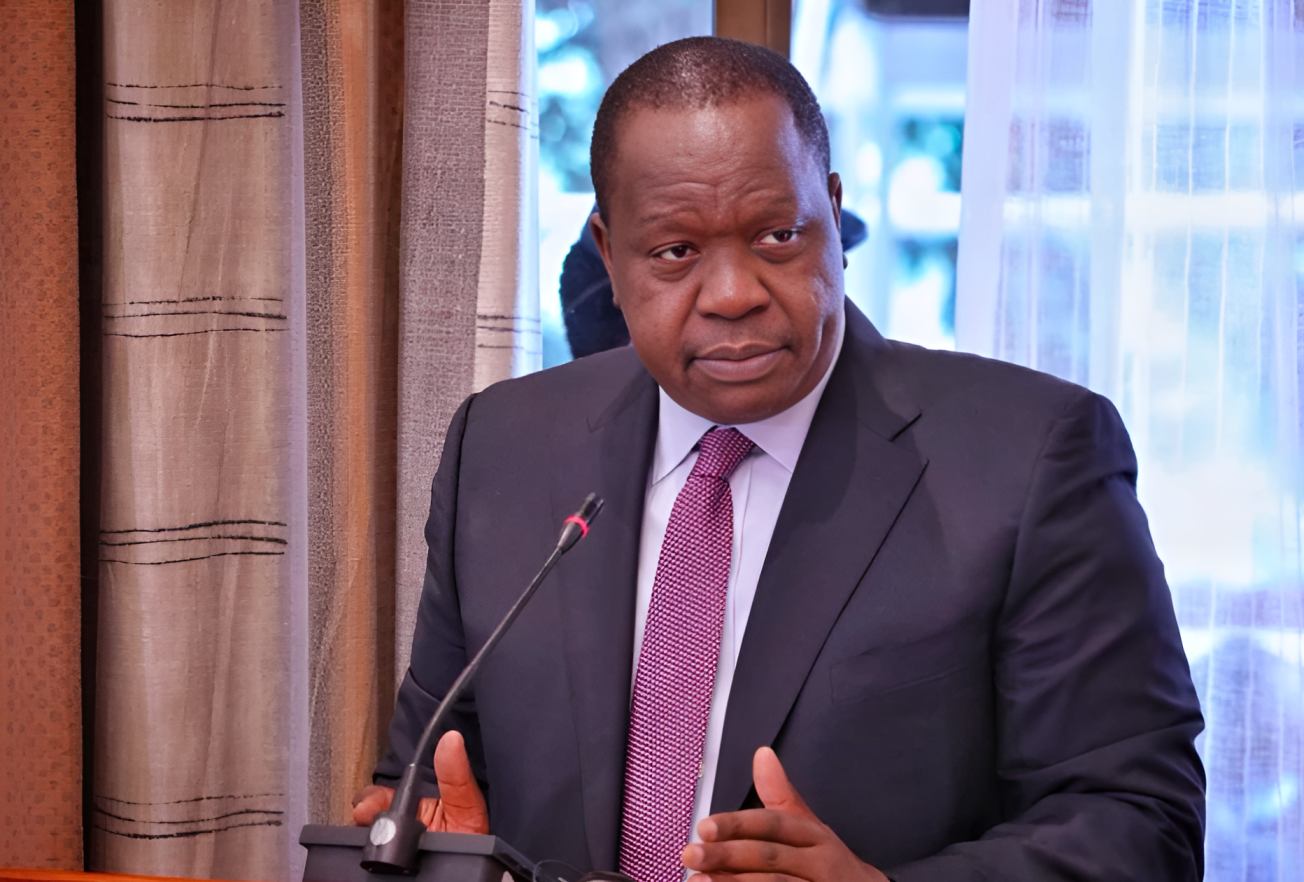Former Interior Cabinet Secretary Fred Matiang’i has issued a stern reminder that governing a nation requires serious commitment, sound leadership, and clear, consistent policies warning against the dangers of tribal politics and personality cults.
While addressing a town hall meeting with members of the Kenyan diaspora in Texas, Matiang’i criticized the current administration for what he described as policy confusion and a lack of focus, particularly in critical sectors like education.
The event, held at DFW Celebrations in Irving, drew a full house, with Matiang’i’s remarks receiving enthusiastic applause.
“Running a country is not a game,” he said. “This is serious work that requires experience, discipline, and a deep understanding of the impact each decision has on millions of lives.”
Matiang’i expressed concern over the growing instability in the education sector, pointing to the inconsistent disbursement of capitation funds to schools.
He noted that primary schools, which used to receive KSh 1,400 per pupil, and secondary schools, which were allocated KSh 22,000 per student, are now receiving reduced or delayed funding if at all.
“I regularly speak with headteachers and school administrators, and the stress they’re under is alarming,” he noted. “Education needs policy consistency. Without it, the entire system suffers.”
Matiang’i’s remarks appeared to be a broader critique of the current government’s leadership style, urging a return to governance focused on planning, service delivery, and national cohesion rather than political theatrics.
Reflecting on the 100% transition initiative from primary to secondary school championed during President Uhuru Kenyatta’s tenure, former Interior CS Fred Matiang’i called for a renewed commitment to educational reforms that address the country’s real challenges.
He emphasized the need for a curriculum aligned with job market realities, stating, “We must shape our education system to respond to current economic demands.”
Shifting focus to national leadership, Matiang’i challenged Kenyans to move past ethnic politics and instead insist on competence and integrity in public service.
“Why are we still stuck in tribal debates?” he posed. “When you’re unwell and walk into a hospital, your concern is getting treatment not the doctor’s ethnicity. That same principle should guide how we run our government.”
He also denounced the growing use of religion for political gain, urging leaders to separate personal faith from governance. “Your faith is your personal matter go to church, love your family, give your tithe but let’s now govern this country responsibly.”
Matiang’i appealed to Kenyans abroad to play an active role in shaping public discourse back home, particularly in promoting issue-driven politics and merit-based leadership.
“In the U.S., you hire people based on their qualifications their résumé, their experience, their integrity,” he noted. “Why should we use a different standard in Kenya?”

